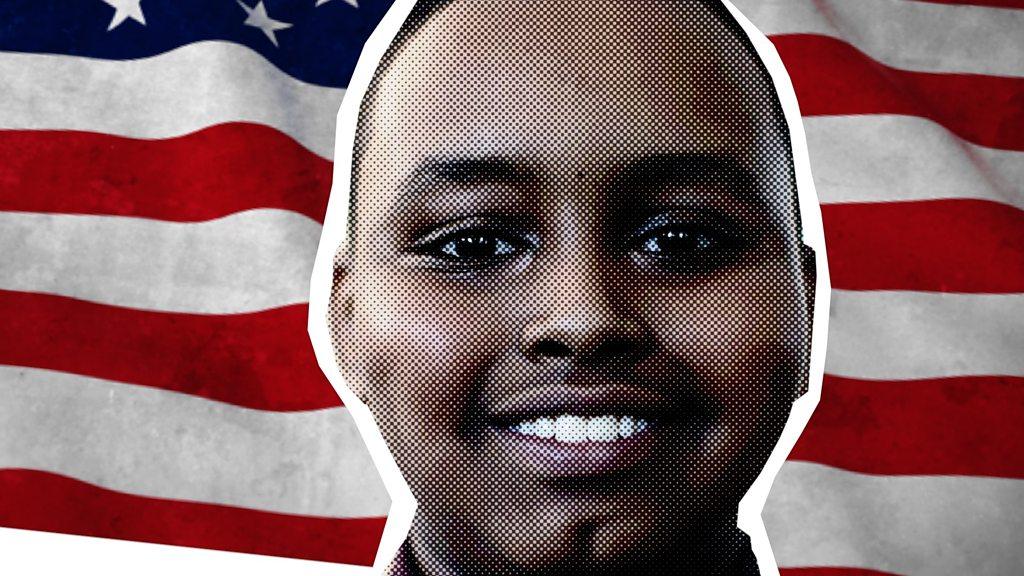Who are the Muslim community patrols protecting US mosques?
- Published
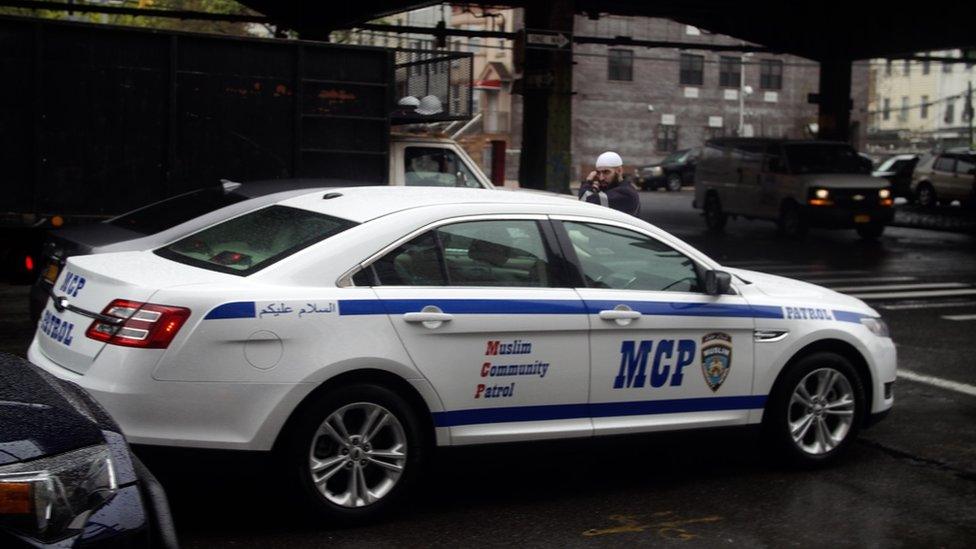
Days after the deadly attack on a mosque in Christchurch, New Zealand, a private patrol service was launched in New York to protect Muslim places of worship there. The additional security has proved controversial.
On a Friday afternoon, minutes before the Muezzins at Brooklyn mosques give the call to prayer, a group of young Muslims is headed to nearby mosques in what look like New York Police Department (NYPD) squad cars.
The cars, with their red and white emergency lights on, will be parked right outside the mosques and stay put while worshippers go in and offer prayers.
The cars and volunteers represent the Muslim Community Patrol, a self-funded group, launched to provide additional security to neighbourhood mosques and Islamic schools in the area at times when they are most crowded.
Noor Rabah, a volunteer and co-founder of the group, calls it "security on steroids".
By keeping the emergency lights on and making the siren go on when there's any trouble, they hope the vehicle can act as a deterrent.
"We are not the muscle of NYPD. We are the eyes and ears to report to the proper authorities," says Mr Rabah, who formally launched the patrol service after 51 people were killed in the attack on two mosques in New Zealand in March.
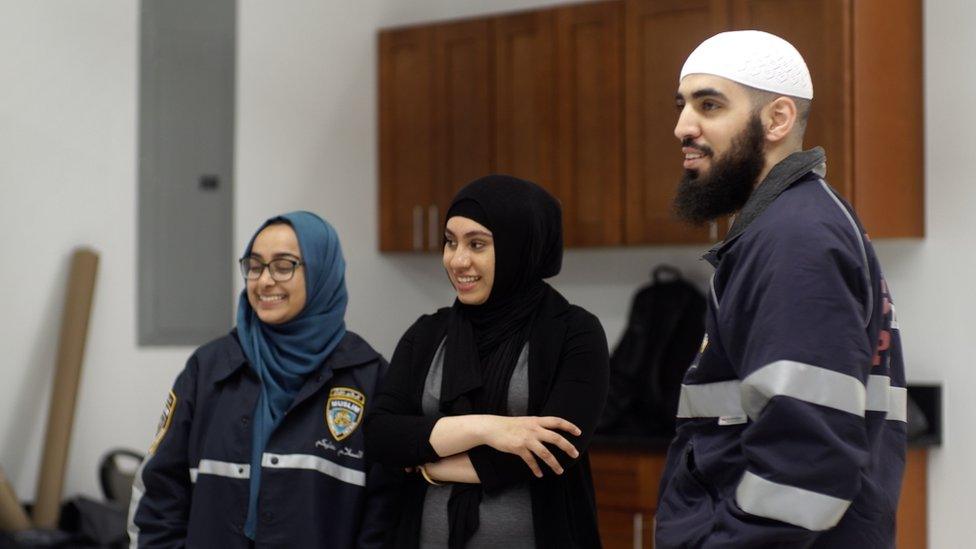
Noor Rabah with patrol volunteers
Security has long been a concern for worshippers - but since the Christchurch attack it's become a priority.
During this month-long Ramadan, the Council on American-Islamic Relations, the country's largest Muslim advocacy group, has urged the Muslim communities to stay vigilant and step up security.
Many mosques in the country have conducted security drills including active-shooter training.
The Muslim Community Patrol, too, has beefed up its presence in and around Brooklyn mosques - but ever since the idea of such a patrol was floated, they have also faced backlash, particularly on social media.
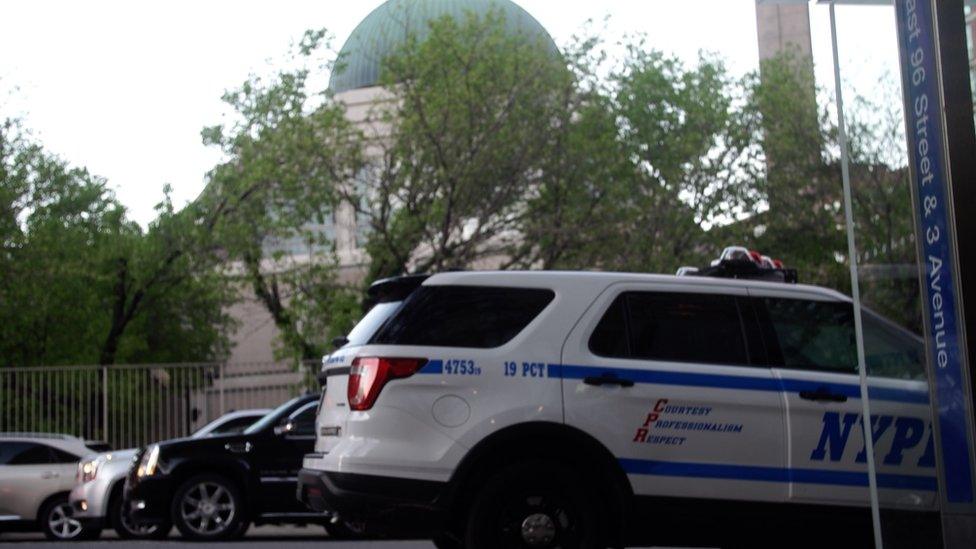
An official New York police car seen outside a mosque
A few far-right commentators have accused them of being enforcers of Sharia law.
"It's the fear of the unknown," responds Mr Rabah.
"Allow our actions to show you what our way of life teaches," he says.

More stories about Muslim-Americans

But the patrols are not the police, they are unarmed and don't carry any legal authority.
While many in the community have welcomed their presence in the neighbourhood, there are others who question the need for this patrol and the motives of the group behind it.
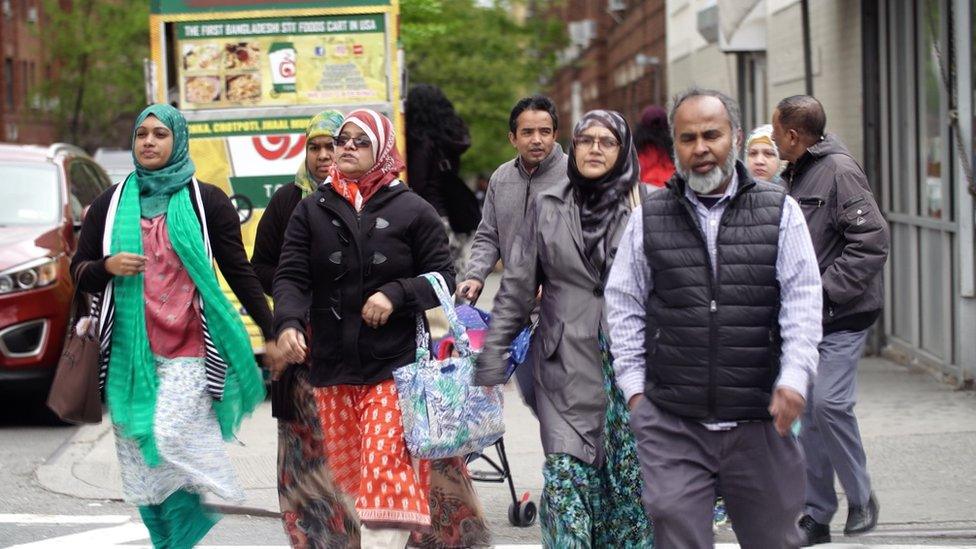
Some members of the local New York Muslim community have questions about the new group
Somia Elrowmeim, who works for the Arab American Association of New York, says there are lots of questions about the group and who they are.
"We want them to stay out of the community. Any small problem that they cause would reflect really badly on us," says Ms Elrowmeim.
She says the Muslim community pays its taxes like any other community and it's the NYPD's job to provide security.
Most prominent mosques now have a heavy police presence - and in New York senior officers have made a point of reaching out.
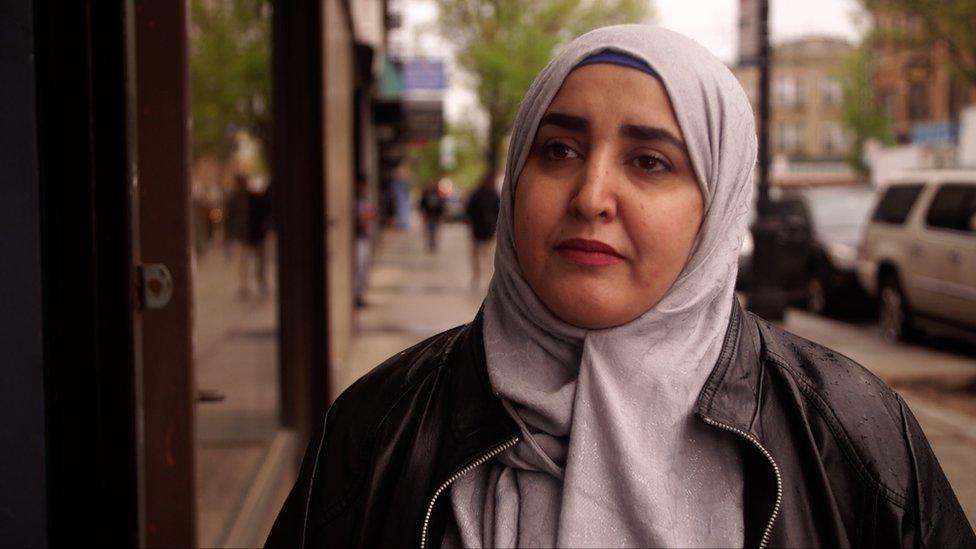
Somia Elrowmeim says if she has to chose between MCP and police, she will choose the police
The city's police department even has a Muslim Officers' Association - which gives the force a direct link to the community (the association has chosen not to comment on the patrols).
New York police, and other law enforcement agencies, have had a troubled history with the Muslim community post- 9/11, and there's still a deeply ingrained fear and suspicion within the community. Many are wary of a continued police presence at their places of worship.
A Michigan-based lawyer and community activist, Namira Islam, urges the community to explore other options for security instead of relying on police and federal agencies.
"I do not feel safer seeing armed police in front of mosque doors. I do not feel safer with federal agents attending my events," says Ms Islam.
What's it like to be Muslim cop during Ramadan?
She says there's a history of implicit bias within the law enforcement against the Muslim community in general and at times the law also requires them to act on issues like immigration enforcement.
"Just because it's legal doesn't mean it's just," she says, citing the example of undocumented worshippers being turned over to federal agencies by the local police guarding the mosques.
There's also a concern that increased police presence will keep many worshippers, who are suspicious of law enforcement, out of the mosques.
It's too early to say whether communities will embrace the Muslim Patrol as the other option, but for now the group is busy signing-up and training new volunteers with plans to expand nationwide by next year.
- Published16 April 2014
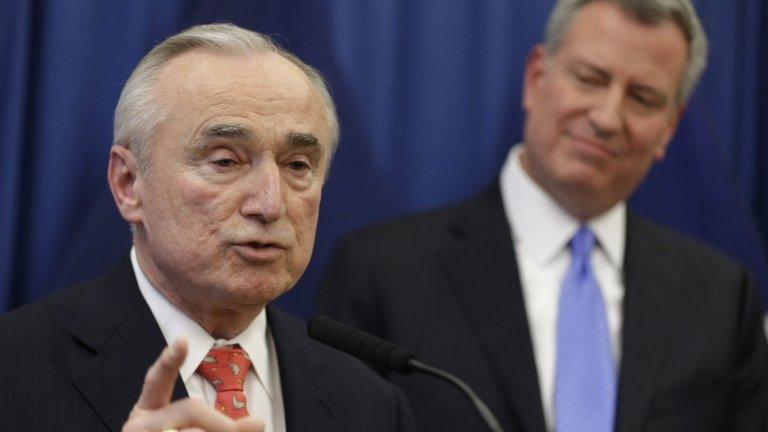
- Published1 February 2017
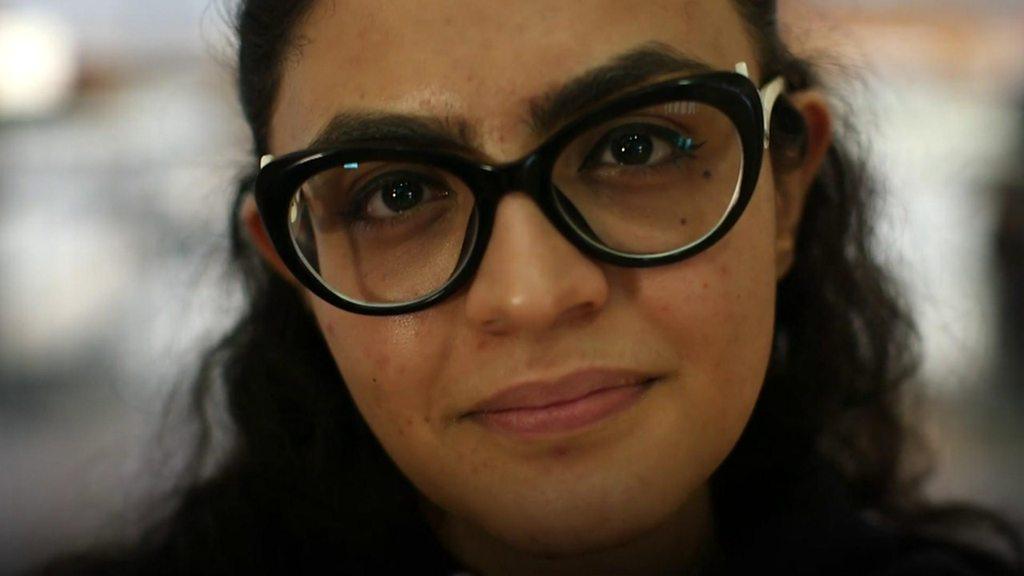
- Published30 October 2016
- Published6 March 2018
